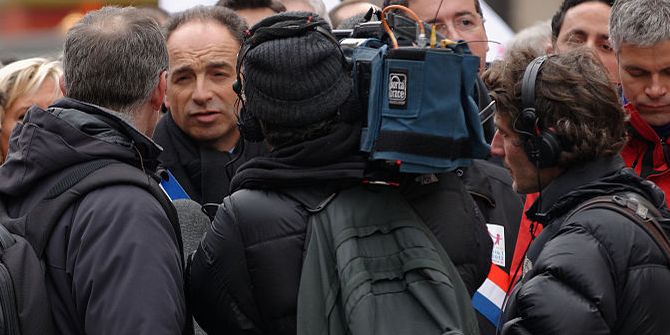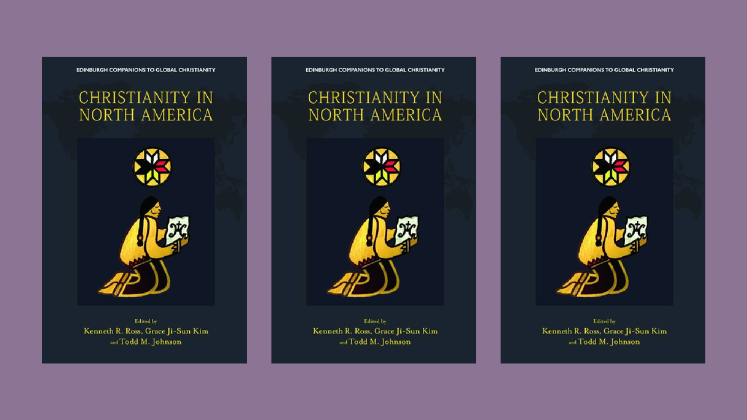In this article Charles Dunst shares an adapted chapter from his forthcoming book “Defeating the Dictators: How Democracy Can Prevail in the Age of the Strongman”.

In the 1970s, the dominant tone of life in Moscow was one of grayness. Soviet authorities brutally imposed this malaise on the city’s people, attacking the intelligentsia whenever the Soviet Union’s best and brightest veered too far from the party line. The city’s most creative people had been beaten into submission; their future in the Soviet world of cinderblocks and planned economics was bleak, and they knew it. For the Soviet Union’s Jews, anti-Semitism added yet another layer to this gloom. Institutional discrimination prevented the country’s most educated Jews, regardless of their intelligence, from studying certain subjects and securing certain jobs.
Mikhail and Eugenia were Jews and members of the small Soviet intelligentsia, but they, too, had lost opportunities because of their faith. They were happy enough in the Soviet Union, but something was off. It was when Mikhail attended a 1977 mathematics conference in Warsaw, Poland that the dam finally broke. For the first time in his thirty years of life, he had the chance to engage and talk freely with colleagues from the United States, England, and Germany. He discovered, contrary to Moscow’s propaganda, that these Westerners ‘were not monsters’, but mathematicians striving for much the same solutions as he was. He discovered, too, all the opportunities on which he and his family were missing out. Upon returning to Moscow, Mikhail had made up his mind. ‘We cannot stay here anymore,’ he told his wife, mother, and four-year-old son.
In May 1979, they left the country – and were some of the last Jews allowed to do so until the Gorbachev era. They eventually settled in College Park, Maryland, where their family would soon seize all the American dream had to offer. Growing up in an open, democratic society largely free of institutional anti-Semitism, their son Sergey excelled, graduating from the University of Maryland in just three years (rather than four) before beginning his doctoral studies at Stanford. But history had different plans for him than academia: at Stanford, Sergey met Larry Page; they soon launched the innovation that would change the world – Google.
What this story and the immigration chapter in my book – Defeating the Dictators: How Democracy Can Prevail in the Age of the Strongman – make clear are the benefits of immigration and the need for advanced democracies to accept more people from abroad. Indeed, Google exists because of immigration; it exists in the United States because America opened its arms to just some of the weary Jews of the Soviet Union. And while the whole world may benefit from Google’s innovation, it evidently pays to be American: the firm has invested nearly USD 40 billion in the United States over the last half-decade alone.
England, too, has benefited from migrants’ choices. Tottenham forward and England captain Harry Kane’s father is from Ireland; Arsenal midfielder Bukayo Saka’s parents are Nigerian; and Chelsea winger Raheem Sterling was born in Jamaica. In fact, half of the twenty-six-man squad that England sent to the 2021 European Championships could have chosen to represent another nation. But they didn’t. They chose England, and England benefitted.
The argument for immigration is fairly clear.
First, immigrants are a net economic benefit to their host countries in terms of taxation, GDP growth and innovation. Second, democracies in the West – along with Japan, Taiwan, and South Korea – are experiencing demographic distress, and immigrants are the only reasonable solution to maintain growth while our birth rates decline. Third, it is to our advantage on a symbolic level that most would-be émigrés everywhere still want to move to democracies, not to China, Russia, or Saudi Arabia, demonstrating that for some reason people continue to prefer us.
The reason is the promise of the good life: of the freedom and wealth that only democracy can deliver, and that autocracies still cannot. China, Singapore, the Gulf States, and others can lay claim to the future all they want, but the weary people of this world – those fleeing home only because home, as the Somali-British poet, Warsan Shire, has written, ‘is the mouth of a shark’ and the ‘barrel of a gun’ – give lie to these dreams. It is always those facing the most desperate straits who are most likely to speak the truth. And in their most dire moments, those brave people fleeing the jaws of poverty and violence continue, against all odds, to choose us. They continue to choose democracy.
It was once Eastern Europe’s Jews fleeing West; today it is persecuted Christians, Muslims, atheists, gays, and others from around the world dream of London and New York because of what we promise.
But democracies are not well-equipped to accept them.
When economic conditions worsen, as they have in recent years, anti-immigrant sentiment rises, with people likely to look out for themselves and their ‘tribe’. Which means that in a world facing manifest challenges, from inflation to inequality, leaders would be wise to explain the economic benefits of immigration, rather than just the values-based case. Ordinary people need to understand that immigration helps their country’s economy, and that they themselves will likely feel the effects. Arguments that we must accept immigrants because it is the ‘right thing to do’ will only go so far when people are struggling to make ends meet at home.
Similarly critical to boosting immigration is having honest conversations about the real cultural concerns.
There is no question that a 55-year-old Syrian refugee from Aleppo probably does not have the same progressive views on LGBTQ people or Jews as a London-born teenager. Polls show as much: a 2017 study reported that 54 percent of Iraqi refugees and 52 percent of Syrian refugees in Germany agreed with the statement: ‘Jews have too much influence in the world.’ One academic in Germany, Antje Röder, found that Muslim immigrants in Europe are less accepting of homosexuality than their native-born counterparts.
I am a gay Jewish man; clearly, I think these concerns are real and should be grappled with. But they should not be overstated. We should do background checks to prevent terrorists from entering our countries – just about everyone agrees on that point – but we don’t need all our citizens, refugees or not, to think the way elites deem ‘correct’. Democracies survive because they tolerate peaceful differences of opinion, even on sensitive issues like these.
It’s worth noting, too, that people often change their minds upon moving to and living in a new place. Röder, the German academic, found that Muslim migrant opposition to homosexuality ‘weakens with longer stay’, while Muslim immigrants’ children are significantly more supportive of homosexuality than their parents. Children of one foreign-born parent and one local are more accepting of homosexuality than the average native, suggesting that people willing to inter-marry across ethnic lines – immigrants included – tend to hold more progressive views on LGBTQ people, which they pass on to their children.
Cultural concerns must not stymie refugee resettlement. On the contrary, we should look to make the most of such resettlement to solve labour shortages for which there are no local solutions, as Denmark and cities like Utica, New York have done, with the expectation that cultural differences may persist, at least for one generation.
Additionally, we must fix the nuts and bolts of our immigration systems, which range from broken to hopelessly onerous. The United States even limits the number of immigrants with ‘extraordinary ability’; children of temporary workers who grow up here are forced to leave at 21 if they do not get permanent residence; the United States also issues no temporary visas to year-round workers who do not have college degrees. Just about all of this is bad policy.
Japan’s system is so onerous – and tolerant of worker abuse – that it hinders both low- and high-skilled workers from coming. French immigration policy focuses not on attracting people, but on explicitly keeping them away. Australia’s overly harsh policy, which allows for years-long detention of asylum-seekers, has a similar effect.
But calls for change are complicated by the fact that immigration is such a charged issue. There is no way around that. Some people want no immigrants, others want only skilled immigrants, and a loud minority says that any immigration restrictions are racist and beyond the pale.
Pro-immigration politicians and advocates would do well, then, to explain how and why immigrants serve to boost our economies and make our governments more functional, all of which has the potential to improve domestic trust in democracy – thereby giving our governments more political space with which to combat autocracy abroad, while also making the case for why our system is better at home. If that is not convincing enough, consider that economists believe allowing more people to move from low-productivity poor countries to high-productivity rich countries would increase global GDP by trillions of dollars.
The benefits are real, and they will be felt by many. These benefits will help democracies take on the challenges posed by autocracies like China and Russia: more money in people’s pockets will fend off autocracy’s rise at home; more money will also allow our governments to dedicate more resources to advancing our efforts abroad. The symbolism of successful immigrants continuing to choose us, rather than autocracies, will only further demonstrate democracy’s superiority.
This is a case not for open borders but for smart borders – for borders that allow the movement of both refugees fleeing persecution and a certain number of economic immigrants looking to make more money and live a better life. Our willingness to continue accepting these people, truck drivers and technology professionals alike, will ensure our greatness not just for my generation, but for those set to come beyond us.
It is immigrants, the weary peoples of the world, who will help us defeat the dictators, not only today, but tomorrow, too.
Note: This piece gives the views of the author, and not the position of the LSE Religion and Global Society blog, nor of the London School of Economics.





